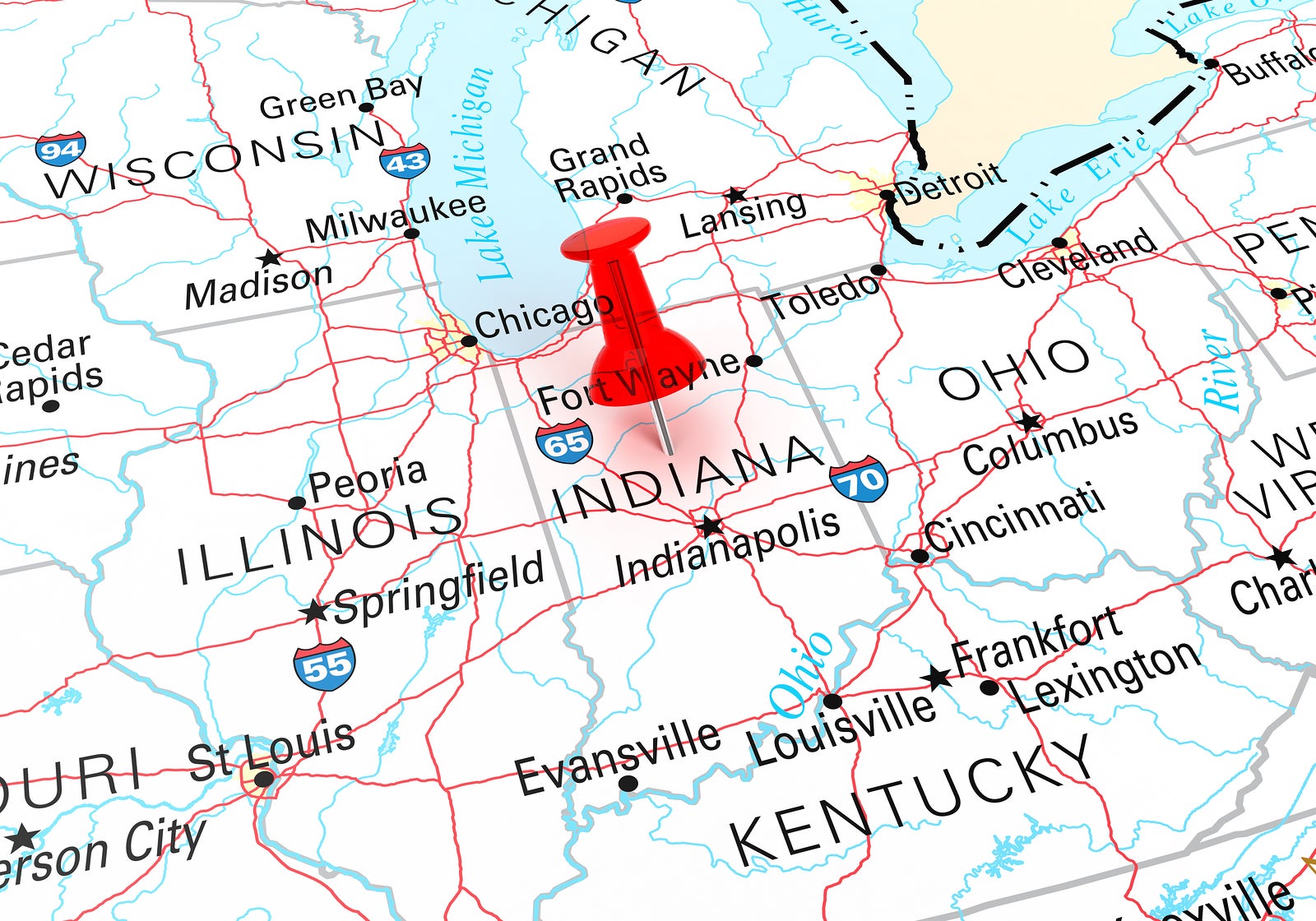Vulnerable Populations
-
Advocates in Arizona and Florida Win Bulldog of Year Awards for Opening Doors to Coverage for Kids
Connecting with children’s advocates and health policy experts from across the country is the highlight of our annual conference for me. I am always inspired by the “doggedness” of our state partners to make children’s lives better. A few years ago, we started a tradition of opening the conference by presenting the “Bulldog of the…
-
CMS Turns Down Indiana Request to Lock People Out of Health Coverage Who Don’t Complete Renewal Process
While we at CCF were wrapping up our annual conference on Friday, CMS sent a letter to Governor Pence’s office turning down a request by the state to amend their Medicaid Section 1115 HIP 2.0 waiver in two ways that would have been harmful to beneficiaries. The first issue is especially of interest as we…
-
Medicaid Expansion Promotes Children’s Development and Family Success by Treating Maternal Depression
This paper examines one important reason why access to Medicaid for poor adults is crucial for children’s healthy development. Other research has documented the reasons why Medicaid coverage matters so much for uninsured adults, both parents and non-parents: It reduces the rate of uninsurance, allows them to get treatment for medical and mental health problems, and stabilizes family finances.…
-
Florida and Utah Remove 5-Year Wait for Legal Immigrant Children
July 1 will be a great day for children living in Florida and Utah as the five-year Medicaid/CHIP waiting period for legal immigrant children will be eliminated. Now 30 states and DC have accepted the Immigrant Children’s Health Improvement Act (ICHIA) option passed into law as part of the reauthorization of CHIP in 2009. (Note:…
-
Using Data to Document and Improve EPSDT Participation
For the second part of our series on EPSDT, we’ll turn our attention to data. If you missed the first part, go back for a moment to catch up before continuing. CMS-416 The official federal data source for EPSDT is the CMS-416 form. States are required to use this form to report EPSDT data to…
-
Thanks to Improvements Made After Hurricane Katrina, Louisiana is Better-Prepared for a Medicaid Enrollment Boost
By A.J. Custer Starting July 1st, low-income adults in Louisiana will gain health insurance benefits, as the state officially becomes the 31st state to expand Medicaid. Enrollment has already begun and the Louisiana Department of Health and Hospitals predicts an estimated 375,000 people will enroll in Louisiana’s Medicaid program over the next year. The program…
-
Supreme Court Impasse on Expanded DACA and DAPA: A Missed Opportunity For Kids’ Health
By Mayra E. Alvarez, The Children’s Partnership, and Sonya Schwartz, Georgetown University Center for Children and Families, also posted www.childrenspartnership.org The Supreme Court’s 4-4 vote in United States v. Texas leaves immigrant families and those who care about their future deeply saddened but ready to fight again for inclusion and fairness. With this split decision,…
-
California Moves Toward Offering Full Price Coverage to Ineligible Immigrants in its Marketplace
Governor Brown recently signed into law SB 10, a bill that requires Covered California—the state’s health insurance marketplace—to request a waiver from the federal government to allow immigrants who are currently ineligible to purchase marketplace coverage. If the waiver is granted, immigrants who are not lawfully present would be allowed to purchase health coverage at…
-
Six States Hold the Key to Reaching Nearly Half of the Uninsured Kids Who Are Eligible for Medicaid/CHIP
By Genevieve M. Kenney, Jennifer Haley, Clare Pan, Victoria Lynch, and Matthew Buettgens, Urban Institute, Funded by the Robert Wood Johnson Foundation We recently examined how children’s coverage fared during the first year of implementation of the major coverage provisions of the Affordable Care Act (ACA). We found increases in participation in Medicaid and the Children’s…
-
Comprehensive Coverage for Children in California—Regardless of Immigration Status—Begins Today
Today is great day for kids in California. All children in California now—regardless of their immigration status—have access to free or low cost, comprehensive, health coverage if their family income is at or below 266 percent of the federal poverty level (about $53,625 for a family of three). According to the Berkeley Labor Center, up to…
-
New Georgetown Report: Understanding the Consumer Enrollment Experience in the Affordable Care Act Marketplaces
Georgetown University’s Center on Health Insurance Reforms released a report this week, funded by the Robert Wood Johnson Foundation, that provides new insights into the many challenges facing consumers and those tasked with assisting them when enrolling into coverage through the Affordable Care Act (ACA) marketplaces. The findings can help policymakers better understand the kinds of systemic…
-
Covered California Raises the Bar on Reducing Health Disparities
By Cary Sanders, California Pan-Ethnic Health Network, and Mike Odeh, Children Now At Covered California’s latest April Board meeting, Executive Director Peter Lee declared: “We are raising the bar not just for California but for the nation.” Mr. Lee was referring to the bold initiatives adopted by the Covered California board that they expect will…
-
Responding to the Flint Michigan Water Crisis: What is the Role of Medicaid?
Today I had the opportunity to testify before the House Energy and Commerce Health Subcommittee on lessons emerging from the Flint water crisis. I wish the hearing hadn’t been necessary but I hope Flint is a wake up call to reexamine our nation’s policy on lead and children’s health. I am concerned not just about…
-
Testimony for Hearing on “The Flint Water Crisis: Impacts and Lessons Learned”
The following prepared remarks were delivered by Joan Alker on April 13, 2016 before the Subcommittee on Health and Subcommittee on the Environment of the House Committee on Energy and Commerce for the hearing “Flint Water Crisis: Impacts and Lessons Learned.” Her views do not represent those of Georgetown University. My name is Joan Alker, and…
-
ICHIA Option: Which States Cover Legal Immigrant Children in Medicaid/CHIP?
[Note: This fact sheet was updated in 2018.] The 2009 Children’s Health Insurance Program Reauthorization Act (CHIPRA) gave states a new option to begin using federal matching dollars to cover lawfully residing children during their first five years in the U.S. This fact sheet provides an overview of this option and details the states that…
-
Florida Children’s Health Expert Shares Insights on Major Turning Point for Immigrant Kids
By Diana Ragbeer, The Children’s Trust On Thursday, March 17, Governor Rick Scott signed HB 5101 into law, thereby lifting the five-year waiting period for lawfully residing immigrant children to receive subsidized CHIP and Medicaid through Florida KidCare. This makes Florida the 31st state to take advantage of the provision known as the Legal Immigrant Children’s…
-
Research Shows that Utah and Florida’s “ICHIA Option” Will Improve Access to Health Coverage and Services For Lawfully Residing Immigrant Children
Last week, both the Utah and Florida legislatures passed laws that extend Medicaid and CHIP coverage to lawfully residing children who would otherwise have had to wait five years before becoming eligible to enroll. This is a big victory in two states with some of the highest child uninsurance rates in the country. Related Content…
-
Breaking News: U.S. House Energy and Commerce Committee Moves to Cut CHIP Funding
The Congressional budget process appears to be in a fair amount of chaos with Senate and House Republicans at risk of failing to agree with each other even on a Budget Resolution. While that is not surprising — given the state of disarray in Congress — I was surprised to see that the House Energy…
-
CHIP Bump Brings About Coverage Gains for Kids in Florida and Utah
Just a few hours ago, the Florida legislature passed its final bills of the session and included an extension of Medicaid and CHIP coverage to lawfully residing immigrant children who are currently excluded for five years. Known to many as the “ICHIA option”, this was a huge victory for kids in Florida (and their advocates…
-
Some Tax Guidance for People in Immigrant Families
Now that we are knee-deep in tax season, we have heard reports of confusion about new tax filing rules related to health coverage for people in immigrant families. Here are some of the common questions we’ve heard so far and our answers. Related Content: ICHIA Fact Sheet: CHIP and Health Coverage for Lawfully Residing Children…





